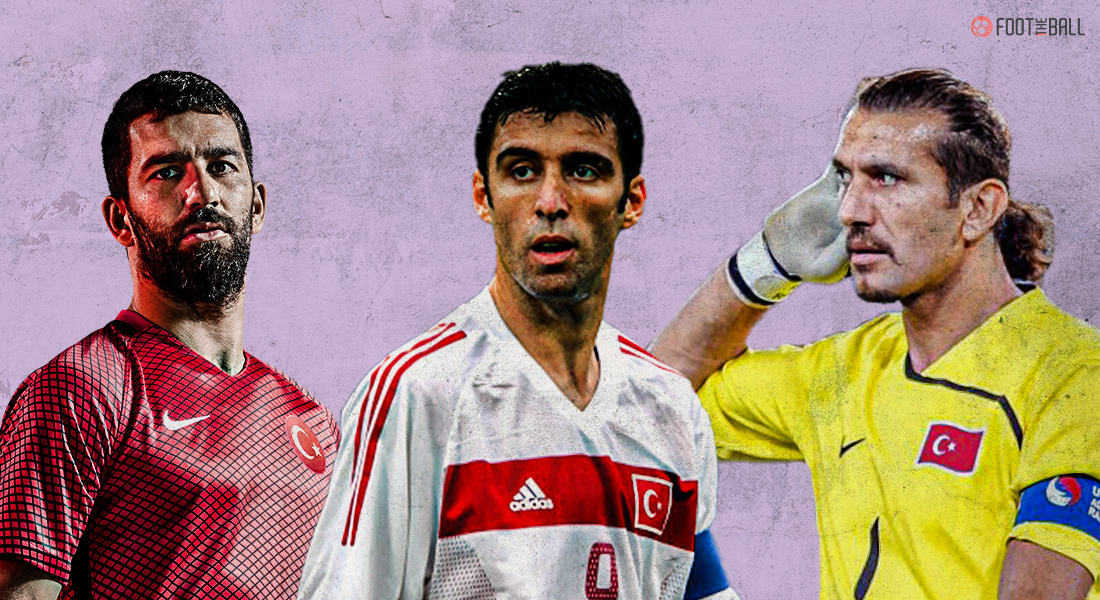Football in Turkey began with the Greeks during the later years of the Ottoman Empire, with the game migrating with other known things from the British into other parts of Europe. And slowly it became a popular sport in the country and still is.
It has become so popular that it is now an identity for the Turkish fans who frequently say, “The love for football in our country may be found nowhere else in the world” and such an assertion is worth considering for the regular and also fanatics across the world.
For a city like Istanbul to become dead is not imaginable for the common man. Well, it can, for ninety minutes if Turkey is playing in the city, even if it is against the lowest-ranked team in the world. Such is the love for the game in Turkey that even governments had to be accumulated into the normal life of football.
ORIGINS
Bought into the country by English merchants during the late 19th century, the game started to spread across from the port cities of Istanbul and Izmir into the hinterlands, and by the 1920s, when the Ottoman Empire fell and the Turkish Republic rose, football emerged as the country’s most popular sports attraction.
Teams such as Fenerbahce, Galatasaray, Besiktas found their roots in the country’s capital but most of them were de facto in nature as until 1959, only various city leagues existing in the nation. While the Istanbul Football League was the biggest, the Ankara and Izmir Football Leagues featured in the country.
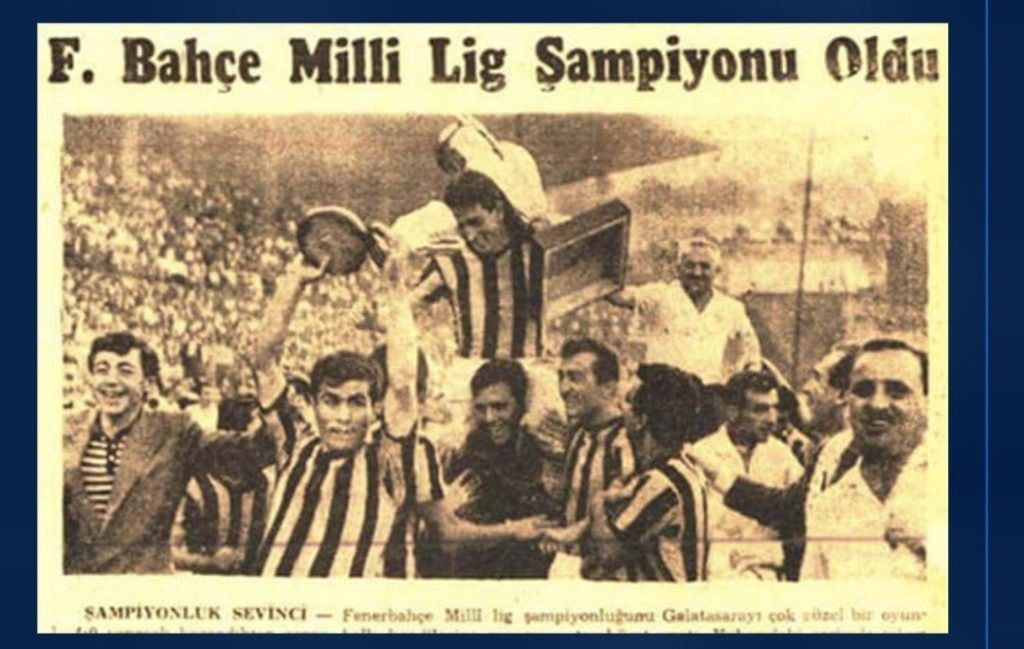 Fenerbahce, the inaugural champions of the Milli Lig in 1959. (Image Courtesy: Fenerbahce / Twitter)
Fenerbahce, the inaugural champions of the Milli Lig in 1959. (Image Courtesy: Fenerbahce / Twitter)
In 1959, the first unified competition of the country, the Milli Lig, known presently as the Super Lig was formed having 16 teams from the three regional leagues that existed priorly.
On the national front, the Turkish national team played their first game of football officially in 1930 against Romania which ended in a 2-2 draw.
Although being one of the minnows during that period, Turkey qualified for the 1950 World Cup but had to withdraw due to financial constraints. They achieved the same in 1954 but this time they crashed out in the group stage. Since then, they have only played once more in the World Cup, in 2002, and astonishingly came third in the entire tournament, behind giants Brazil and Germany.
📅 #OnThisDay in 1954, Turkey qualified for their first-ever #WorldCup 🏆
🇹🇷 They did so at the expense of Spain, triumphing in a truly extraordinary manner 🤯@MilliTakimlar | #WCQ
— FIFA World Cup (@FIFAWorldCup) March 17, 2021
In the Euros too, even though they had an exciting squad, they did not qualify for the tournament until 1996, where they were eliminated at the group stage, with the best finish of third coming in 2008.
TURKEY AND ITS IDENTITY
Across the 1950s and 1960s, Turkish football was always based upon the identities of other popular nations across the world such as Brazil, England, Germany, or at times Spain. Predominantly, the clubs in Turkey preferred to employ foreign coaches to manage their football teams, and slowly this was adopted by the national team until the 1970s.
Since the 1970s, the Turkish national team has been managed by 23 different managers and only four of them have been non-Turkish. But this idea of the Turkish national team managed by a Turk at all costs did not come to fruition until the start of the new millennium.
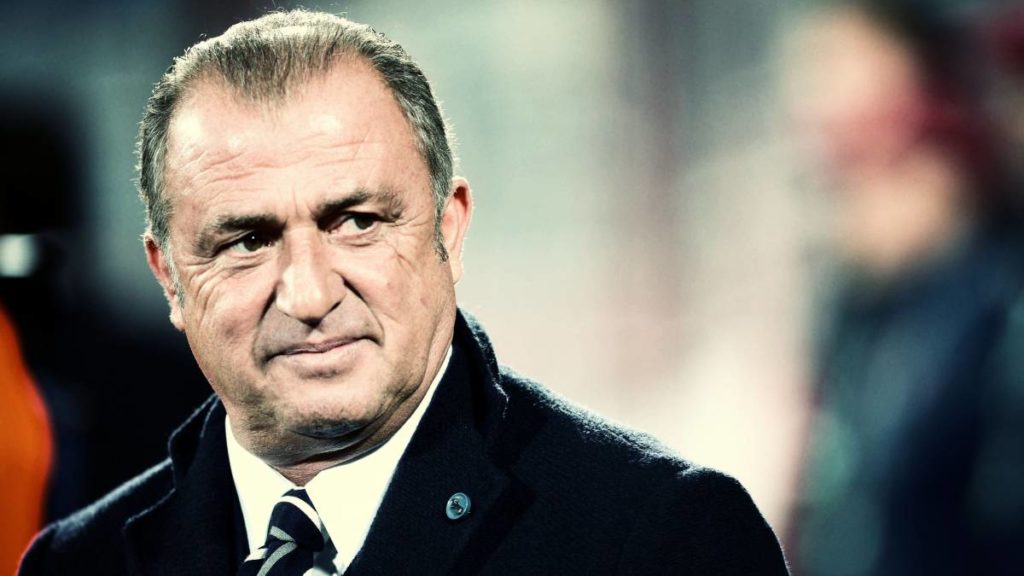 Fatih Terim, the man who established the football identity of Turkey. (Image Courtesy: AS / Website)
Fatih Terim, the man who established the football identity of Turkey. (Image Courtesy: AS / Website)
In the preceding thirty years, Turkey only managed to qualify for either of the big two tournaments only once, in 1996 for the Euros, and in that they finished bottom of the tournament, in 16th position.
The start of the century, however, showed a green light into the country’s future as an up-and-coming star, as they started off with a quarter-final finish in the 2000 edition of the Euros. But their 3rd placed finish in the 2002 FIFA World Cup sent shocks across the globe.
ON THIS DAY IN 2002: Hakan Sukur scored the fastest #worldcup goal. See our daily stats kit – http://t.co/brjqOpYfG4 pic.twitter.com/jCrKx751vd
— FIFA World Cup (@FIFAWorldCup) June 29, 2014
The team, with a core of Rustu Recber and Hakan Sukur which was managed to qualify to the quarterfinals in the continental tournament, now was a bronze medallist under the management of Senol Gunes, in the biggest football competition on Earth.
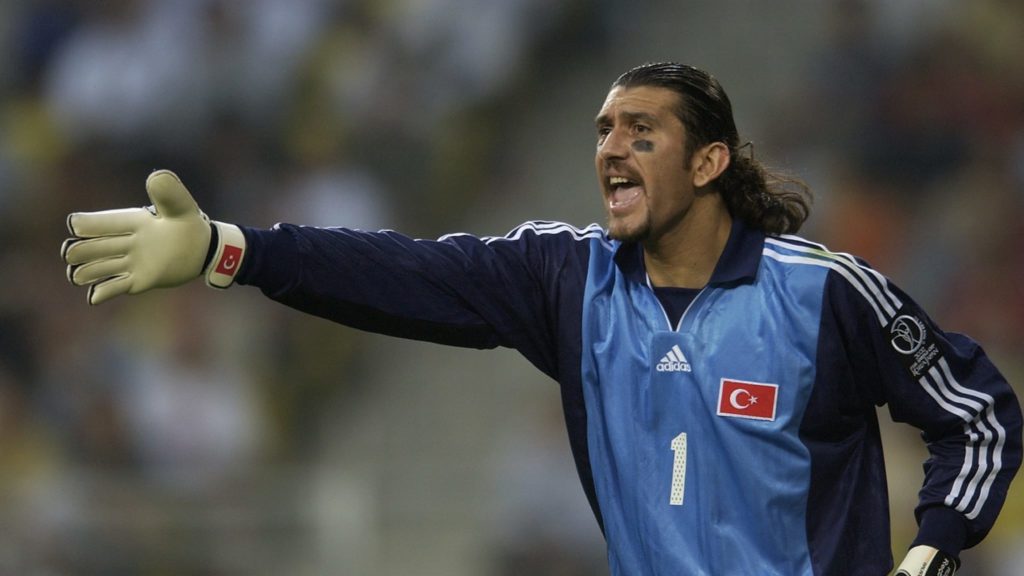 Rustu Recber, Turkey’s most capped player. (Image Courtesy: FIFA / Website)
Rustu Recber, Turkey’s most capped player. (Image Courtesy: FIFA / Website)
This performance instilled confidence in Turkey that they can have their own identity, which was started under Fatih Terim’s management in 1993, and the thought of depending upon another country’s style was slowly erased.
The same core mentioned above, now with the addition of the gifted Arda Turan, went on to finish third in the 2008 edition of the Euros, their best-ever finish to date.
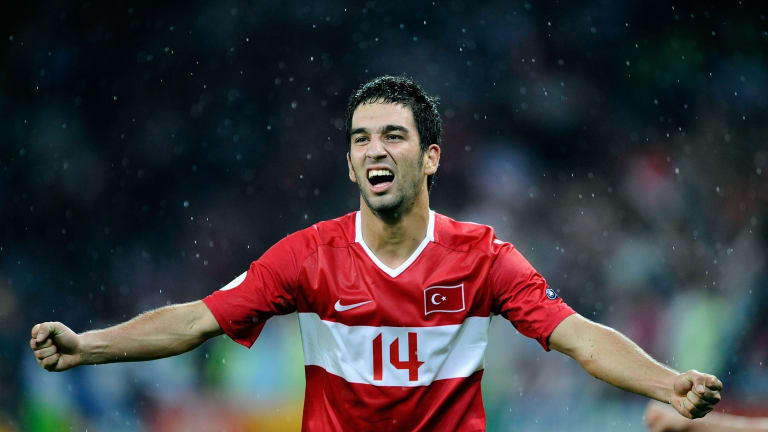 Arda Turan, during the Euros held in 2008. (Image Courtesy: Sao Paulo / Website)
Arda Turan, during the Euros held in 2008. (Image Courtesy: Sao Paulo / Website)
The ideas of being tough and strong against opponents were starting to be drilled into the players by the managers and since then, it has continued to be the same.
FOOTBALL IN TURKEY WITH A POLITICAL IDENTITY
As football grew bigger in Turkey, its identity of being just a sport changed as time passed by. Fan violence started growing at a rapid rate which made governments get involved in the sport, and this influence big time in the recent past.
While the start of government influence was due to violence between the fans of different clubs, over time, it has grown in order to control the country in a more authoritarian way, particularly under the regime of Recep Tayyip Erdogan, the current president of Turkey.
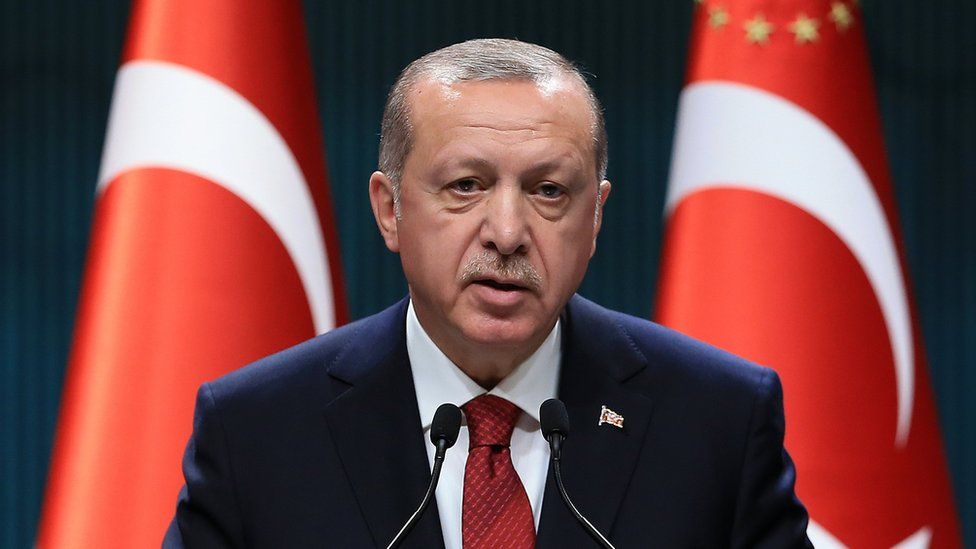 President Recep Tayyip Erdogan . (Image Courtesy: BBC / Website)
President Recep Tayyip Erdogan . (Image Courtesy: BBC / Website)
Controversial decisions such as Law 6222 were passed in order to control fan behaviour at stadiums, but the fans believe that these laws increase public pressure in a civilian way and take away the freedom of being a fan of a football club.
There have been clashes with the local governments and councils too, after the decision of the Erdogan government to have each municipality create a sports club and in turn, create a football team that plays in Turkey’s football pyramid eventually, making them essentially state-sponsored clubs.
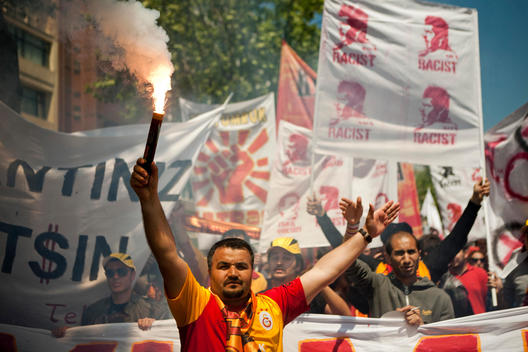 Fan protests in the streets. (Image Courtesy: CNN / Website)
Fan protests in the streets. (Image Courtesy: CNN / Website)
On a positive note, though, these violent ideologies are kept aside by everyone when Turkey as a nation plays in any match, be it against San Marino, and for ninety minutes, the country is united in their cheering for the nation with full of pride and heart.
CAN THEY DO IT THIS YEAR?
With a number of experienced and youngsters in the squad, Şenol Gunes’ men will go into the campaign with renewed confidence after their recently concluded positive run of fixtures.
Their depth in central defence is second to none and Gunes will bank on his defenders to do it for him and the country. That will be visible when his side takes on Italy in the tournament’s opening fixture.
We, at FootTheBall, predict that although it might be difficult for the Turks to qualify as the group winner, they are capable enough to qualify as a runner-up or at least as one of the four best third-placed teams at the end of the group stage. The ultimate test then starts, as they can any of the top sides in the world.

